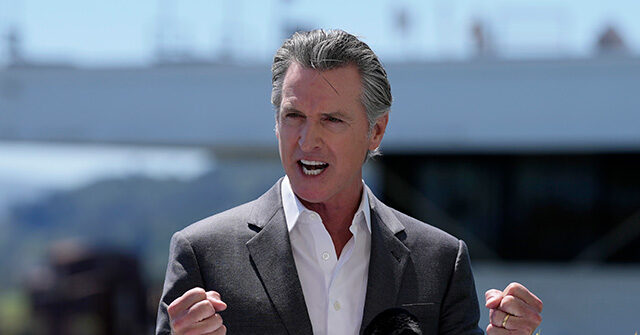California is making a significant investment of $1.4 billion to expand its electric vehicle (EV) charging infrastructure amidst significant budget deficits. This funding is aimed at supporting the ambitious goal set by Governor Gavin Newsom, which mandates that by 2035, all new vehicles sold in the state must be electric. Despite this objective, recent reports indicate that EV sales in California have been underperforming and falling short of set targets. Adding to the confusion, Governor Newsom is advocating for increased spending even as the state grapples with fiscal challenges, despite having received substantial financial relief from the federal government through President Biden’s American Rescue Plan.
The California Energy Commission, the regulatory body responsible for overseeing the state’s energy policy and initiatives, recently approved a comprehensive $1.4 billion strategy designed to bolster EV charging options. This initiative is expected to install nearly 17,000 additional chargers across the state over the next four years, thereby enhancing the pre-existing network of over 152,000 public and private charging stations. In line with environmental justice goals, state regulators have committed that at least half of the funding will be allocated to areas disproportionately affected by pollution, such as communities near highways, oil refineries, and landfills. This focus seeks to ensure equitable access to EV infrastructure and mitigates the impact of pollution in vulnerable communities.
The push for EV infrastructure is unfolding amidst rising political uncertainties, particularly with the potential return of Donald Trump to the White House. Trump’s administration has historically been critical of ambitious climate policies, including those aimed at transitioning to electric vehicles. During his campaign, he highlighted opposition to federal incentives for EV adoption and proposed a reassessment of President Biden’s stringent vehicle fuel efficiency standards. Such changes could significantly affect the viability of California’s EV goals, as the elimination of tax credits, currently ranging from $7,500 for new electric vehicles to $4,000 for used models, could deter consumers from purchasing these cars.
In response to the potential removal of federal incentives, Governor Newsom has expressed intentions to reinstate California’s tax rebates for electric vehicle purchases. However, these plans are contingent upon securing legislative approval, which may prove challenging given the current budgetary constraints facing the state. Newsom’s commitment to maintaining incentives reflects a broader strategy to support the EV market and encourage more residents to make the switch to electric vehicles, especially if federal support diminishes in the face of a shifting political landscape.
Breitbart News, through senior editor Joel B. Pollak, highlights the volatility surrounding EV sales in California against a backdrop of contrasting state ambitions and the potential for federal policy shifts under a Trump presidency. This environment creates uncertainty for consumers and manufacturers alike, with the ramifications extending beyond California’s borders. Pollak’s analysis situates the state’s ambitious plans within the larger context of national energy and environmental policy discussions, which are likely to evolve dramatically depending on the political winds during and after the upcoming elections.
Ultimately, California’s commitment to expanding its EV infrastructure amidst budgetary pressures reveals a complex balancing act between ambitious environmental targets and economic realities. As state officials push forward with significant investments in charging station networks, the sustainability of these initiatives will depend not only on local legislative support but also on the political climate at the national level. The outcome of these developments will be critical in determining California’s trajectory in the electric vehicle sector and its broader commitments to combating climate change.

